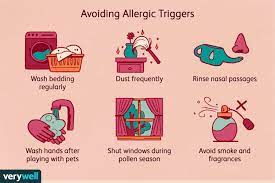Allergic reactions can turn a normal day into a medical emergency within seconds. From common allergens to recognizing symptoms and managing allergies in daily life, this article will guide you through the intricacies of understanding and effectively handling allergic reactions.
I. Introduction
Definition of Allergic Reactions
Allergic reactions occur when the immune system responds abnormally to substances that are usually harmless. These substances, known as allergens, can trigger a range of symptoms, from mild itching to life-threatening anaphylaxis.
Prevalence and Impact on Individuals
Allergies affect millions of people worldwide, impacting their daily lives and, in severe cases, posing a significant threat to their health. Understanding the prevalence and impact is crucial for better management.
Importance of Understanding and Managing Allergies
While allergies are common, the lack of awareness about their potential severity can lead to delayed or inadequate responses. This section highlights why it is essential to comprehend allergic reactions and how effective management can improve the quality of life.
II. Common Allergens
Overview of Common Allergens
Allergens are diverse and can be found in various environments. This section provides an overview of common triggers, including foods, environmental factors, and insect stings.
Foods That Often Cause Allergic Reactions
Certain foods are notorious for causing allergies. Understanding these triggers and adopting dietary changes can significantly reduce the risk of allergic reactions.
Environmental Triggers
From pollen to pet dander, environmental factors can provoke allergic responses. Recognizing and minimizing exposure to these triggers is key to managing allergies effectively.
Insect Stings and Bites
Insect stings and bites can lead to severe allergic reactions. Learning about these reactions and adopting preventive measures is crucial, especially for those with a history of such allergies.
III. Types of Allergic Reactions
Immediate Hypersensitivity Reactions (Type I)
Immediate hypersensitivity reactions are rapid responses that occur within minutes of exposure to an allergen. Understanding this type of reaction is vital for prompt intervention.
Delayed Hypersensitivity Reactions (Type IV)
Unlike immediate reactions, delayed hypersensitivity reactions manifest over time. This section delves into the characteristics of Type IV reactions and their management.
Anaphylaxis: A Severe Allergic Reaction
Anaphylaxis is a life-threatening allergic reaction that requires immediate attention. Recognizing the signs and knowing how to administer epinephrine can be life-saving.
IV. Recognizing Allergic Reactions
Identifying Common Symptoms
Recognizing allergic reactions involves understanding a spectrum of symptoms. From mild itching to difficulty breathing, this section outlines common signs to look for.
Understanding the Differences in Reactions
Allergic reactions can vary in severity. Differentiating between mild, moderate, and severe reactions is crucial for appropriate management.
Importance of Early Detection
Early detection of allergic reactions allows for timely intervention. This part emphasizes the significance of swift action in preventing complications.
V. Managing Allergies
Avoidance Strategies
One of the primary ways to manage allergies is through avoidance. This section explores practical strategies for minimizing exposure to allergens.
Medications for Symptom Relief
From antihistamines to corticosteroids, various medications can alleviate allergy symptoms. Understanding their usage and potential side effects is key for effective management.
Emergency Preparedness and the Use of Epinephrine
For individuals with severe allergies, being prepared for emergencies is crucial. This section guides readers on creating an emergency plan and using epinephrine injectors.
Immunotherapy as a Long-Term Solution
Immunotherapy offers a long-term solution for some individuals with allergies. Exploring this treatment option and its potential benefits is essential for informed decision-making.
VI. Lifestyle and Dietary Changes
Adopting an Allergen-Free Lifestyle
Living with allergies often requires adopting a lifestyle that minimizes exposure to potential triggers. This section provides practical tips for creating an allergen-free environment.
Reading Food Labels Effectively
Navigating food labels is essential for those with food allergies. This part offers guidance on deciphering labels to make safe food choices.
Making Informed Choices to Prevent Reactions
Empowering individuals with knowledge on making informed choices helps in preventing allergic reactions. This section encourages readers to be proactive in managing their allergies.
VII. Allergy Testing
Overview of Different Allergy Tests
Various tests can help identify specific allergens. Understanding the types of tests available and their accuracy is crucial for an accurate diagnosis.
Importance of Professional Guidance in Testing
While some allergy tests are available over the counter, seeking professional guidance ensures accurate results and proper interpretation.
VIII. Impact on Daily Life
Challenges Faced by Individuals with Allergies
Living with allergies presents unique challenges, from social situations to daily activities. This section explores common hurdles and ways to overcome them.
Coping Mechanisms and Support Networks
Coping with allergies is easier with a support network. This part discusses the importance of seeking support and strategies for coping with the psychological impact of allergies.
Raising Awareness in the Community
Raising awareness about allergies fosters understanding and empathy. This section highlights the role individuals can play in educating their communities.
IX. Children and Allergies
Childhood Allergies: A Growing Concern
The prevalence of allergies in children is on the rise. Understanding the unique challenges they face and strategies for managing allergies in children is crucial.
Strategies for Managing Allergies in Children
Parents, schools, and caregivers play a vital role in managing allergies in children. This section provides practical tips for creating a safe environment.
The Role of Parents and Schools
Collaboration between parents and schools is essential for the well-being of children with allergies. Establishing effective communication and allergy management plans is crucial.
X. Allergies in Adulthood
Onset of Allergies in Adulthood
While allergies are often associated with childhood, they can develop in adulthood. Exploring the causes and adjusting to late-onset allergies is discussed in this section.
Challenges and Adjustments for Adults
Adults with allergies face unique challenges. This part explores the adjustments they may need to make and strategies for managing allergies effectively.
Seeking Professional Help for Late-Onset Allergies
When allergies develop in adulthood, seeking professional help is crucial. This section guides adults on when and how to consult healthcare professionals.
XI. Psychological Impact
Emotional Toll of Living with Allergies
Living with allergies can take a toll on mental well-being. This section explores the emotional aspects of managing allergies and offers coping strategies.
Strategies for Maintaining Mental Well-being
Maintaining mental well-being is vital for individuals with allergies. This part provides practical strategies to enhance emotional resilience.
XII. Allergies in the Workplace
Creating an Allergen-Aware Workplace
Employers can play a role in creating a safe workplace for employees with allergies. This section discusses how workplaces can become allergen-aware and supportive.
Employee Rights and Accommodations
Understanding employee rights and accommodations is crucial for individuals with allergies. This part outlines legal aspects and considerations for employers.
Employer Responsibilities in Managing Allergies
Employers share the responsibility of managing allergies in the workplace. This section highlights the role employers play in ensuring a safe and inclusive environment.
XIII. Recent Advances in Allergy Research
Breakthroughs in Understanding Allergic Mechanisms
Advancements in allergy research contribute to a better understanding of allergic mechanisms. This section discusses recent breakthroughs and their potential impact on allergy management.
Promising Treatments on the Horizon
Researchers are continually exploring new treatments for allergies. This part explores promising treatments currently in development and their potential benefits.
XIV. Allergic Reactions and COVID-19
Relationship Between Allergies and the Immune System
Understanding the relationship between allergies and the immune system is essential, especially in the context of a global pandemic like COVID-19.
Implications for Individuals with Allergies During a Pandemic
This section addresses the specific concerns and considerations individuals with allergies should be aware of during a pandemic.
XV. Conclusion
Summarizing Key Points
This conclusion recaps the essential points covered in the article, emphasizing the importance of understanding and managing allergic reactions.
Encouraging Proactive Management of Allergies
The article concludes with an encouragement for readers to take a proactive approach in managing their allergies for a healthier and safer lifestyle.
FAQs
- Can allergies develop later in life?
- Yes, allergies can develop in adulthood. It’s essential to be aware of the signs and seek professional help if needed.
- How can workplaces accommodate employees with allergies?
- Workplaces can accommodate employees with allergies by creating allergen-aware environments, providing necessary accommodations, and fostering open communication.
- Is there a cure for allergies?
- While there is no outright cure for allergies, various treatments, including immunotherapy, can significantly alleviate symptoms and improve quality of life.
- Can COVID-19 worsen allergic reactions?
- COVID-19 itself may not worsen allergic reactions, but individuals with respiratory allergies should take extra precautions due to potential overlapping symptoms.
- What role do parents play in managing allergies in children?
- Parents play a crucial role in managing allergies in children by creating allergen-free environments at home, communicating effectively with schools, and educating their children about their allergies.

